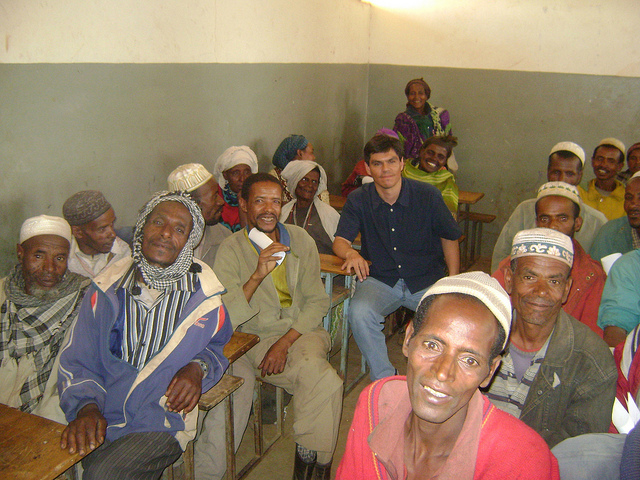To ensure the best use of resources and undertake research that is relevant and useful in a rapidly changing world, IFPRI commissions external assessment of its activities. A recent review focused on IFPRI activities in Ethiopia, one of the most populous and poor countries in Africa south of the Sahara, and thus a high priority for IFPRI’s research and capacity-building work.
From 1995 to 2004, IFPRI’s activities in the country centered on market development, poverty and food security, public investment, and sustainable land management. In 2004, IFPRI and Ethiopia formalized their relationship via the establishment of the Ethiopia Strategy Support Program (ESSP). Set up to provide direct support to the Government of Ethiopia, ESSP assisted in the design and implementation of the country’s national agricultural development strategy, and provides advice on other agricultural and rural development policy matters.
The assessment, prepared by Mitch Renkow and Roger Slade, found that IFPRI has:
- helped to generate a steady stream of high-quality research in Ethiopia across a number of thematic areas;
- contributed to capacity-building efforts that are likely to produce long-term benefits;
- raised the level of policy debate in Ethiopia by creating an environment for evidence-based discussion;
- improved the donor climate through ESSP’s work to align donor priorities with government policies and programs;
- played a key role in underpinning the formation and operation of important Ethiopian organizations such as the Productive Safety Net Program (PSNP) and the Agricultural Transformation Agency;
- been instrumental in setting up the Ethiopian Commodity Exchange; and
- contributed to improvements in the performance of the PSNP’s multiple sub-programs, leading to significant increases in household food security and asset holdings.
The assessment also suggested where IFPRI’s research could be more effective in promoting positive policy change, particularly within the context of country strategy support programs.







